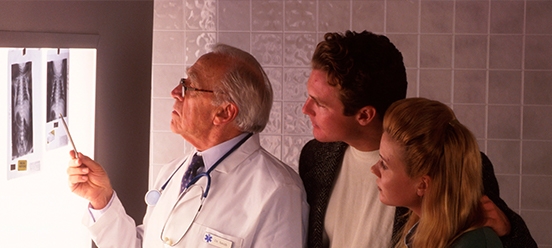After a definitive diagnosis has been made and cancer has been staged, treatment may begin. Treatment of oral cancers is ideally a multidisciplinary approach involving the efforts of surgeons, radiation oncologists, chemotherapy oncologists, dental practitioners, nutritionists, and rehabilitation and restorative specialists. The actual curative treatment modalities are usually surgery and radiation, with chemotherapy added to decrease the possibility of metastasis, to sensitize the malignant cells to radiation, or for those patients who have confirmed distant metastasis of the disease.
More on the metastasis of cancer
Before the commencement of curative treatment, other oral health needs will likely be addressed. The purpose is to decrease the likelihood of developing post-therapeutic complications. Teeth with poor prognosis from periodontal problems, caries, etc., may be extracted. This avoidance of post-radiotherapy surgery is essential as it can sometimes induce osteonecrosis, a condition that can develop when tissue damaged by radiation exposes the underlying bone. The bone, which has lost its ability to efficiently repair itself due to reduced blood supply from radiation exposure, yields a chronic and difficult-to-treat situation. A thorough prophylaxis or cleaning will likely be done as well.
Whether a patient has surgery, radiation, and surgery, or radiation, surgery, and chemotherapy, depends on the stage of cancer development. Each case is individual. More about radiation therapy, surgery, and chemotherapy
Patients with cancers treated in their early stages may have little in the way of post-treatment disfigurement. For those whose cancer is caught at a later stage, the results of surgical removal of the disease may require reconstruction of portions of their oral cavity or facial features. There may be needed adjunctive therapy to assist in speech, chewing of foods, the problems associated with the lack of salivary function, and the fabrication of dental or facial prostheses.







